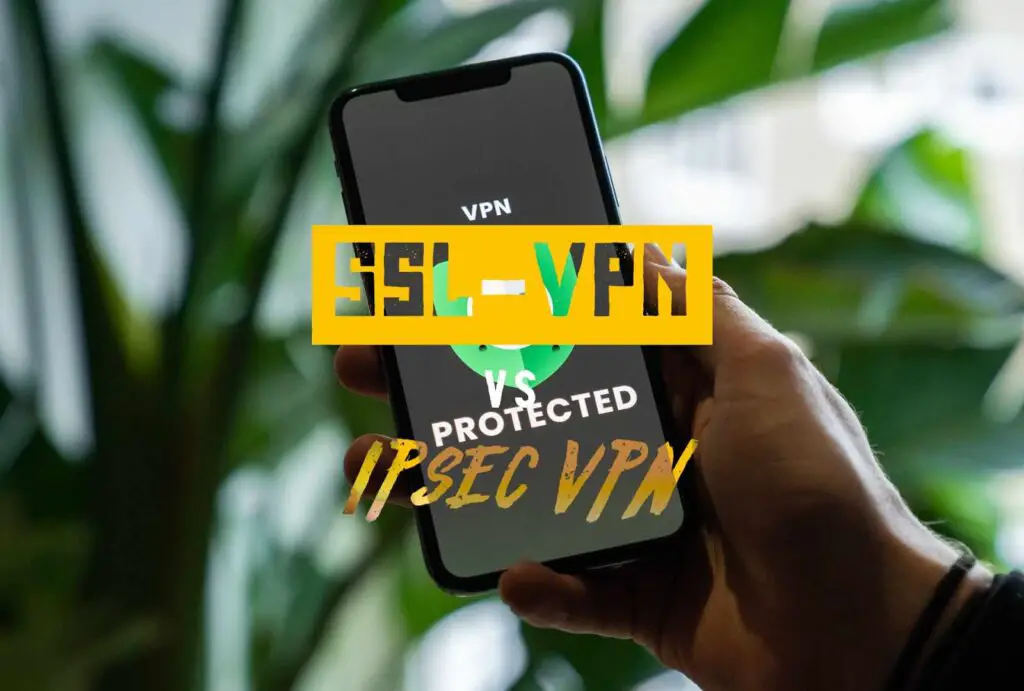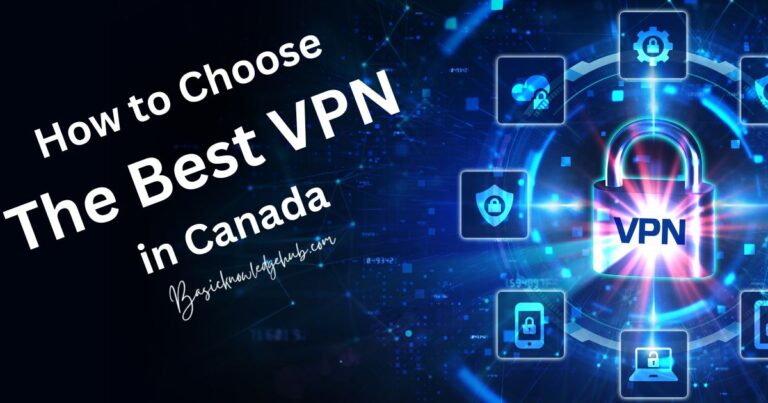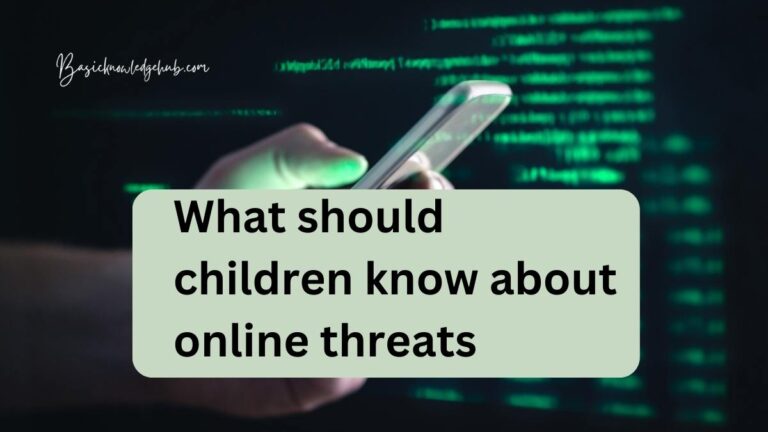SSL VPN Vs IPsec VPN
We are going to see which of the VPNs is best for our application. But before we can start with the comparison for different types of VPNs (like: SSL VPN Vs IPsec VPN). We are going to see what a VPN is, and what are some of its advantages, how you can pick the best VPN which suits your needs. However, you can skip the section if you already know about it. If you want to take a short way then check out the video on our Youtube video.

What is a VPN?
VPN stands for “Virtual Private Network” and with its help, we can stay anonymous online while browsing. A VPN is usually used to stream content and websites which are blocked in the region. But there are other more commercial uses such as creating a secure environment for office use. This creates a network where only authorized people can log in.
This is more important since many people are not working from home, which means the network should be secured. Enterprise should use the best VPN which will suit them and provide the best results. The aim behind using VPN in enterprises is to reduce network access and increase security.
Nowadays, VPNs are used by almost everyone to protect their online privacy and prevent hackers from getting access to the network. We are not going to see in-depth about VPN. But if you are interested then check out our article on VPN.
Do not miss: List of Samsung bloatware safe to remove
What are SSL VPN and IPsec VPN?
Now where we are picking a VPN, we should compare different options available before picking one. The most popular options available are SSL and IPSec VPN, and we are going to see which one suits your needs best. If you are looking for a VPN to use in your enterprise then it is more important to know the advantages and disadvantages of both. Both are different in terms of performance, maintainability, configuration, etc. Which will in the end affect data security and network access. We are going to see what both the VPNs are used for and how you can pick one with a giant fight SSL VPN Vs IPsec VPN.
The major difference between SSL and IPsec VPN is the network layer where encryption and authentication occur. This affects the performance and security of the VPN as we are going to find out later.
NOTE: The network layer is And the only thing it does is transfer data from one network to another. You can understand it as different couriers passing packages to each other until it reaches you.
The OSI model consists of:
- Application layer
- Presentation layer
- Session layer
- Transport layer
- Network layer
- Datalink layer
- Physical layer
IPsec VPN operates at the network layer as mentioned before, it encrypts the data which is sent between systems. All the systems are identified by their IP addresses in the IPsec VPN. On the other hand, SSL VPN uses the TLS (Transform Layer Security), which operates at the transport layer. It transports the encrypted data between different processes identified by port number.
The other major difference between SSL and IPsec VPN is that SSL does not specify encryption of connection and defaults to encryption of network traffic.
Now we are going to see how SSL and IPsec VPN works. You can skip those sections if you are not interested in working.
Read also: Turned off by administrator encryption policy or credential storage
How does IPsec work?
IPsec stands for “Internet Protocol Security” and it is an architecture for securing IP network traffic. IPsec tells how IP hosts can encrypt and authenticate data being sent at the IP network layer. We use IPsec generally to connect remote hosts with a network VPN server.
In simple words, we can understand IPsec VPN as creating a tunnel for you to send your encrypted data. This keeps your data safe from hackers and your ISP while transferring between the remote host and VPN servers. This means that if the hacker compromised the network, then the hacker will be able to see the VPN server and host communicating. But hackers will not be able to read the data being transmitted since it is encrypted.
However, the downside of IPsec VPN is that, both the communicating devices must have the specific software to create and manage IPsec circuits. This means IPsec is harder to maintain and complicated to set up.
How does SSL work?
SSL works on the TLS (Transport Layer) as we have already discussed before to encrypt the data/network. TLS is responsible for authenticating and encrypting connections between programs. Unlike the IPsec, here we identify programs with their IP addresses and port number.
We can use SSL VPNs to protect our network while browsing online and interacting with different servers. This type of VPN acts as a proxy for us and visits the servers on our behalf. This protects our original IP address from the servers and allows us to stay virtually anonymous.
The difference between SSL and IPsec comes in the ability to have more granular control over the connection. SSL only allows connections between specific servers and authorized hosts. Whereas, IPsec allows connection between any system and the authorized host.
If you remember, we mentioned that SSL works on TLS, this adds another security measure. Since the hacker will not be able to identify application protocols even if the network is visible to the hacker. Here unlike IPsec where a single network tunnel carries all the data. Different network tunnels are created for every new connection. This means that even if the hacker can monitor the traffic of some network tunnels, the rest of the data is safe in other network tunnels.
The advantage of SSL VPN is that you don’t have to install any specific software on host devices. This makes it easy to maintain and provides a fast initial setup.
Difference between SSL and IPsec VPN in-depth
Here we are going to discuss the SSL VPN Vs IPsec VPN. We would recommend reading the point mentioned below to get a better idea. But you can go through the difference table to get a quick idea about the differences.
The decision will be based on your requirements, this is why it’s important to compare both VPNs to your needs.
| Data | IPsec | SSL |
| Encryption | Strong | Moderate – Strong |
| Encryption key length | 56-256 bits | 40-256 bits |
| Authentication | 2-way | 1-way or 2-way |
| Connection complexity | Medium | Low |
| Connection options | Only specific device | Any device |
| Applications | All IP based applications | Web-based applications |
| Network layers | Operates at level 3 | Operates at layer 4-7 |
| Configuration | Hard | Easy |
| Pre-shared key | Yes | No |
| UDP support | Yes | No |
| Handshake time | Slow | Fast |
| Connectivity | Connects remote hosts to entire networks | Connects users to specific applications and services |
| Encryption of TCP and application layer | Both TCP and application layer | Application layer |
| IP header authentication | Yes | No |
Now we are going to see the difference in-depth to give you a better idea. We would recommend not skipping this section since it is the more critical part of the article. Some of the differences between SSL VPN and IPsec VPN:
- Performance: Nowadays, the performance is virtually identical on the powerful modern hardware. But if you want to keep the performance-optimized then you should run a benchmark test to see which runs faster on your device. But in theory, the SSL VPNs will run much faster since they can operate through web browsers. This is why SSL VPNs can set up the connection much faster than IPSec VPNs.
- Security: Here the type of VPN will not matter much since each one has different encryption techniques. The most important thing here is to see which type of VPN will protect you from the type of attacks you can face. And after you identify the type of VPN, you should compare all the available options and see which is the best for you. Each VPN software will have its pros and cons, and you should not go with any VPN without comparing it. And you should check what type of encryption algorithm the VPN is using since it will affect the security most.
- Data authentication: As we know that VPN encrypted the data which is going through the network tunnel. But VPNs can also protect the network from getting tempered via strong cryptographic authentication algorithms. This occurs with the help of key exchange, the host device and VPN server will exchange keys to make sure the connection is secure. IPsec relies on an external protocol (Internet Key Exchange), and SSL uses negotiation key exchange algorithms.
- Attack defense: This is the difference where each VPN will vary since every VPN software will have different underlying VPN protocols. Here you should compare every VPN which you are considering to check how the VPN service will respond to an attack.
- Client security: SSL VPNs rely on TLS and it is included in every browser and other application protocols. Whereas IPsec protocols are a part of the TCP/IP suite and do not implement default components.
- End-to-end networking: IPsec operates at the network layer, which means the communication will occur between network nodes with IP addresses. And SSL operations are TLS, which means communication occurs between processes. IPsec makes it easier to secure end-to-end encryption. But it also requires additional configuration and management, making it time-consuming compared to SSL VPNs.
We have seen some of the differences between IPsec VPN and SSL VPN. You should compare different VPN services to pick the best one for you. We saw that the most important thing determining the differences was the underlying protocols of every VPN. Since the type of VPN does not matter as much as the ability to add new features for your needs.
Summary
In the article, we first learned what a VPN is and what it does to secure our connection. If you want to read more about VPNs and how they work then read our dedicated article.
You should compare different VPN services mainly SSL VPN Vs IPsec VPN and should not care about the type of VPN unless you are very specific about your needs. You should compare the underlying protocols of every VPN and the encryption algorithm used by them. There is not a single correct answer when it comes to picking a VPN since every VPN will have its pros and cons. Go through the differences again if you are confused at any point in the article. And feel free to drop down your queries in the comment section below. We are more than happy to help out our readers.



